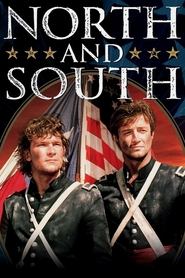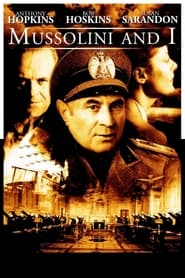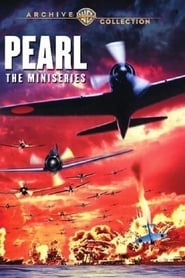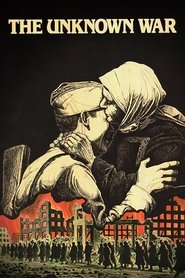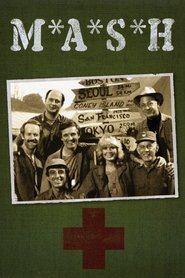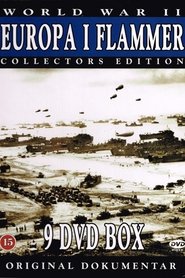New War Politics TV Series on Amazon Video - Page 13
-
Vietnam
1987
Vietnam
1987
star 7The Goddard family is about to be torn apart by the arrival of Australian conscription during the Vietnam War. -
Yes, Prime Minister
1986
Yes, Prime Minister
1986
star 8.4James Hacker MP the Government's bumbling minister for Administrative Affairs is propelled along the corridors of power to the very pinnacle of politics - No. 10. Could this have possibly have been managed by his trusted Permanent Private Secretary, the formidably political Sir Humphrey Appleby who must move to the “Top Job” in Downing Street to support him, together with his much put upon PPS Bernard Wolley. What could possibly go wrong? -
North and South
1985
North and South
1985
star 7.4The story of the enduring friendship between Orry Main of South Carolina and George Hazard of Pennsylvania, who become best friends while attending the United States Military Academy at West Point but later find themselves and their families on opposite sides of the American Civil War. -
Mussolini and I
1985
Mussolini and I
1985
star 5.2World War II is about to end. Benito Mussolini, il Duce, supreme dictator of Fascist Italy, sees his totalitarian dream crumbling and his power slipping away as the terrible day of his ignominious death at the hands of those he so ruthlessly oppressed for more than two decades draws inexorably near. -
Shōgun
1980
Shōgun
1980
star 7.6An English navigator becomes both a player and pawn in complex political games in feudal Japan. -
Yes Minister
1980
Yes Minister
1980
star 8.3Satirical sitcom set in the office of a UK Cabinet minister, Jim Hacker MP, who struggles with Civil Service bureaucracy and political machinations as he tries to get on with government business. -
Pearl
1978
-
The Unknown War
1978
The Unknown War
1978
star 6A documentary television series of the Nazi-Soviet War, edited from over 3.5 million feet of film taken by Soviet camera crews from the first day of the war, 22 June 1941, to the Soviet entry into Berlin in May 1945. -
Secret Army
1977
Secret Army
1977
star 7.5World War II drama about covert organisation Lifeline helping allied airmen escape after being shot down in occupied Europe, working with the Resistance and hiding from the Gestapo. -
The World at War
1973
The World at War
1973
star 8.3A documentary series that gives a historical account of the events of World War II, from its roots in the 1920s to the aftermath and the lives it profoundly influenced. -
А зори здесь тихие
1972
А зори здесь тихие
1972
star 10In a remote village in Karelia, Sergeant Vaskov commands an anti-aircraft unit that protects a rail depot. While his men are transferred to the front line, he is reprimanded for their unruly behavior. He retorts that he wants replacements that aren't drunks or womanizers. In response, he is assigned a unit made up entirely of young women, fresh from training. -
M*A*S*H
1972
M*A*S*H
1972
star 7.9The 4077th Mobile Army Surgical Hospital is stuck in the middle of the Korean war. With little help from the circumstances they find themselves in, they are forced to make their own fun. Fond of practical jokes and revenge, the doctors, nurses, administrators, and soldiers often find ways of making wartime life bearable. -
Victory at Sea
1952
Victory at Sea
1952
star 6.5Victory at Sea is a documentary television series about naval warfare during World War II that was originally broadcast by NBC in the USA in 1952–1953. It was condensed into a film in 1954. Excerpts from the music soundtrack, by Richard Rodgers and Robert Russell Bennett, were re-recorded and sold as record albums. The original TV broadcasts comprised 26 half-hour segments—Sunday afternoons at 3pm in most markets—starting October 26, 1952 and ending May 3, 1953. The series, which won an Emmy award in 1954 as "best public affairs program", played an important part in establishing historic "compilation" documentaries as a viable television genre. Over 13,000 hours of footage gathered from US, British, German and Japanese navies during World War II were perused in the making of these compelling episodes. -
Crusade in Europe
1949
 Netflix
Netflix
 Amazon Prime Video
Amazon Prime Video
 Apple iTunes
Apple iTunes
 Apple TV Plus
Apple TV Plus
 Disney Plus
Disney Plus
 Google Play Movies
Google Play Movies
 Paramount Plus
Paramount Plus
 Hulu
Hulu
 HBO Max
HBO Max
 YouTube
YouTube
 fuboTV
fuboTV
 Peacock
Peacock
 Peacock Premium
Peacock Premium
 Amazon Video
Amazon Video
 The Roku Channel
The Roku Channel
 AMC+
AMC+
 Kocowa
Kocowa
 Hoopla
Hoopla
 The CW
The CW
 Vudu
Vudu
 Starz
Starz
 Showtime
Showtime
 PBS
PBS
 Pantaflix
Pantaflix
 FXNow
FXNow
 Tubi TV
Tubi TV
 Kanopy
Kanopy
 Comedy Central
Comedy Central
 Crunchyroll
Crunchyroll
 Microsoft Store
Microsoft Store
 Redbox
Redbox
 Sun Nxt
Sun Nxt
 ABC
ABC
 DIRECTV
DIRECTV
 Crackle
Crackle
 Fandor
Fandor
 Plex
Plex


